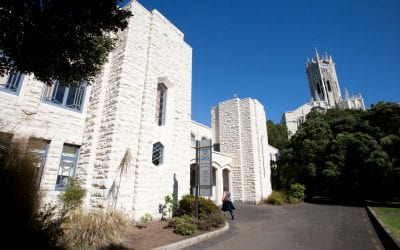Master of Indigenous Studies (Online)
Build your knowledge, skills, and understanding of core Indigenous concepts, developments, and research methodologies. Book ConsultationApply NowMaster of Indigenous Studies (Online)
Build your knowledge, skills, and understanding of core Indigenous concepts, developments, and research methodologies. Book ConsultationApply NowEntry Requirements
120 point: A Bachelors Honours degree or Postgraduate Diploma, or an equivalent, in a relevant subject with a GPA of 5.0 or higher.
Duration
180 point: 3 years part-time.
120 point: 2 years part-time.
Next Start Dates
- Semester 2: 21 July (Applications close 7 July)
Full Programme Fees*
120 point: $9,361.80 (estimate)
Disclaimer: *Our Programme Advisors will provide all official programme information, including regulations about entry, enrolment, course fees, examinations and requirements for degrees, diplomas and certificates as per the University Calendar. Courses are paid per Term Session. Fees are set in advance of each calendar year and will be updated on this website. Fees are inclusive of 15% GST, but do not include the Student Services Fee, course books, travel and health insurance, or living costs. Amounts shown are indicative only. In addition to the tuition fees, there is a Student Services Fee of $4.44 per point (online). Fees will be confirmed upon completion of enrolment into courses.
Programme Brochure
Why is this programme right for you?
The Master of Indigenous Studies at the University of Auckland is your next step in making a difference and greater contribution through positive transformative change. Drawing on global indigenous knowledge, you will become part of future-oriented solutions to complex societal problems. Equip yourself with the power of indigenous knowledge and worldviews in the vast range of relevant fields, such as healthcare, education, justice, and more, to further your practice as a well-versed contributor of the global community.
What are the key benefits?
1. Become Part of a World-Class Faculty:
Globally recognised as a leader in Indigenous research and change, New Zealand and its peoples have been heavily involved in the work in ensuring the rights and privileges of indigenous peoples throughout the world. As the country’s top University, we are also home to leading experts in indigenous studies and host to Ngā Pae o te Māramatanga (NPM), Aotearoa’s only Māori Centre of Research Excellence.
2. Unique Global & Critical Perspective:
The Master of Indigenous Studies at the University of Auckland draws on global indigenous scholarship to emphasize a critical indigenous perspective, incorporating environmental, political, and psychological dimensions.
3. Building Inclusive Community :
Whether you are interested in understanding critical indigenous perspectives or seeking advanced knowledge and credibility, this globally recognised programme welcomes both indigenous and non-indigenous students. We foster an inclusive learning space that values diverse perspectives, encourages participation and the incorporation of professional advancement with personal journeys.
Apply now and take your next step to join us!
Programme Structure
The Master of Indigenous Studies aims to provide you with the intellectual capacity and culturally-informed critical skills to build a career working for and with Indigenous people. This programme will support your learning and research experiences by allowing you to develop a deep understanding of both applied and theoretical areas of Indigenous Studies. You will be required to relate broad concepts drawn from the core courses on Indigenous theories and cultural politics to their area of work and/or interest. The ethical and epistemological issues raised in the courses will help equip you to carry out culturally sensitive research.
The Master of Indigenous Studies is available as a 180-points programme or a 120-point programme, depending on what level of study you have previously completed.
The Master of Indigenous Studies (180-points) consists of 5 courses. Each course runs over a 12-week Semester, enabling you to complete the programme in 3-years part-time, taking just one course at a time.
For the first two years of this programme, you will complete four taught courses (INDIGEN 700, 711, 712, & PACIFIC 714), and in your final year you will complete your Dissertation (INDIGEN 792A/B). For more detail about each of the courses, please see the table below.
The Master of Indigenous Studies (120-points) consists of 3 courses. Each course runs over a 12-week Semester, enabling you to complete the programme in 2-years part-time, taking just one course at a time.
In the first year of this qualification, you will take two taught courses (INDIGEN 700 & PACIFIC 714), and in your second and final year of this programme, you will complete your Dissertation (INDIGEN 792A/B).
* Starred courses are subject to regulatory approval.
Course Code |
Course |
Description |
Points |
| INDIGEN 700 | Indigenous Theories | Topics include cultural autonomy, political inclusion, land claims, urbanisation and Indigenous rights. Through a close reading of key texts and engaging in seminar discussions, students will deepen their insight into the knowledge systems that embody Indigenous world views and be able to critically and analytically engage with historical and contemporary issues in Indigenous Studies. | 30 |
| PACIFIC 714* | Pacific Research Methodologies and Practices | Analyses critical approaches to Pacific research development and evaluation of research design in Pacific Studies. Focuses on analytical engagement with a range of Pacific methodologies and methods in Pacific research. Includes application of theory to research questions and development of proposals for research that draw on Pacific world views and form a basis for robust, innovative and significant research contributions. | 30 |
| INDIGEN 711 | Indigenous Environmental Politics | Examines contemporary issues related to Indigenous peoples and the environment. There will be a particular focus on the interface between Indigenous peoples, governments and corporate bodies. Topics may include Indigenous responses to environmental degradation; Indigenous peoples and extractive industries; sustainable development; Indigenous environmental protest movements; land and treaty rights; traditional knowledge and resource protection; and Indigenous peoples and climate change. | 30 |
| INDIGEN 712 | Indigenous Psychologies | Examines the historical and material circumstances Indigenous peoples face and the emergence and development of Indigenous psychologies to respond to a range of social and psychological challenges. Covers topics relevant to Indigenous and non-Indigenous survival and flourishing including cultural contributions to health and collective and individual wellbeing. | 30 |
| INDIGEN 793A/B* | Dissertation | Examines key research issues for Indigenous peoples. Students will develop a focused understanding of relevant methodologies, ethics and cultural understandings in Indigenous Studies. Students will develop a research project that identifies a particular Indigenous issue and implement an appropriate methodology. | 60 |
Programme Structure
The Master of Indigenous Studies aims to provide you with the intellectual capacity and culturally-informed critical skills to build a career working for and with Indigenous people. This programme will support your learning and research experiences by allowing you to develop a deep understanding of both applied and theoretical areas of Indigenous Studies. You will be required to relate broad concepts drawn from the core courses on Indigenous theories and cultural politics to their area of work and/or interest. The ethical and epistemological issues raised in the courses will help equip you to carry out culturally sensitive research.
The Master of Indigenous Studies is available as a 180-points programme or a 120-point programme, depending on what level of study you have previously completed.
The Master of Indigenous Studies (180-points) consists of 5 courses. Each course runs over a 12-week Semester, enabling you to complete the programme in 3-years part-time, taking just one course at a time.
For the first two years of this programme, you will complete four taught courses (INDIGEN 700, 711, 712, & PACIFIC 714), and in your final year you will complete your Dissertation (INDIGEN 792A/B). For more detail about each of the courses, please see the table below.
The Master of Indigenous Studies (120-points) consists of 3 courses. Each course runs over a 12-week Semester, enabling you to complete the programme in 2-years part-time, taking just one course at a time.
In the first year of this qualification, you will take two taught courses (INDIGEN 700 & PACIFIC 714), and in your second and final year of this programme, you will complete your Dissertation (INDIGEN 792A/B).
* Starred courses are subject to regulatory approval.
INDIGEN 700 - Indigenous Theories - 30 Points
Topics include cultural autonomy, political inclusion, land claims, urbanisation and Indigenous rights. Through a close reading of key texts and engaging in seminar discussions, students will deepen their insight into the knowledge systems that embody Indigenous world views and be able to critically and analytically engage with historical and contemporary issues in Indigenous Studies.
PACIFIC 714* - Pacific Research Methodologies and Practices - 30 Points
Analyses critical approaches to Pacific research development and evaluation of research design in Pacific Studies. Focuses on analytical engagement with a range of Pacific methodologies and methods in Pacific research. Includes application of theory to research questions and development of proposals for research that draw on Pacific world views and form a basis for robust, innovative and significant research contributions.
INDIGEN 711 - Indigenous Environmental Politics - 30 Points
Examines contemporary issues related to Indigenous peoples and the environment. There will be a particular focus on the interface between Indigenous peoples, governments and corporate bodies. Topics may include Indigenous responses to environmental degradation; Indigenous peoples and extractive industries; sustainable development; Indigenous environmental protest movements; land and treaty rights; traditional knowledge and resource protection; and Indigenous peoples and climate change.
INDIGEN 712 - Indigenous Psychologies - 30 Points
Examines the historical and material circumstances Indigenous peoples face and the emergence and development of Indigenous psychologies to respond to a range of social and psychological challenges. Covers topics relevant to Indigenous and non-Indigenous survival and flourishing including cultural contributions to health and collective and individual wellbeing.
INDIGEN 793A/B* - Dissertation - 60 Points
Examines key research issues for Indigenous peoples. Students will develop a focused understanding of relevant methodologies, ethics and cultural understandings in Indigenous Studies. Students will develop a research project that identifies a particular Indigenous issue and implement an appropriate methodology.
*Courses are paid per Semester. Fees are set in advance of each calendar year and will be updated on this website. Fees are inclusive of 15% GST, but do not include the Student Services Fee, course books, travel and health insurance, or living costs. Amounts shown are indicative only. In addition to the tuition fees, there is a Student Services Fee of $4.44 per point (online). Fees will be confirmed upon completion of enrolment into courses.
Master of Indigenous Studies – Enquire Now
Online Learning: How it works for your life
Particularly amidst the COVID-19 lockdown, the benefits of using online technologies to communicate have been made obvious to all New Zealanders. It’s never been easier to get a world class education online, and increasing numbers of universities and students are...
The University of Auckland: Climbs Global Rankings
Today’s announcement of the 2021 QS World University Rankings sees New Zealand’s highest ranked university, the University of Auckland, rise to 81st in the world. This represents a year-on-year improvement of two places and a 13-place improvement since 2013/14. The...
What’s it like studying an online Masters degree?
With an undergraduate degree, and probably a fair number of years’ work experience, the time may have come to consider taking the next step in your career and study towards a Masters degree in your chosen field. The majority of Masters students likely studied their...




